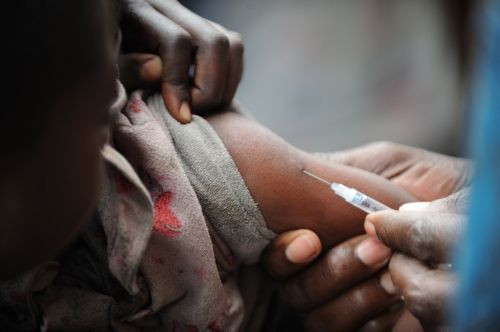1 in 10 Young Children in Alternative Vaccine Schedules

A new study has found that more than one in ten parents of young children from the ages of 6 months and 6 years currently use an alternative vaccination schedule, as the lead author warned the risks of under-immunization.
A study published in the journal pediatrics on Monday found that 13 percent of parents surveyed followed an alternative vaccination schedule.
The survey comes as increasing numbers of parents are using alternative schedules which differ from the schedule recommended by experts, according to the study.
The lead author, Amanda Dempsey, an assistant professor and pediatrician at the University of Michigan warned of the risks of not following the schedule.
“Small decreases in vaccine coverage are known to lead to dramatic increases in the risk of vaccine preventable disease outbreaks,” she said in a released statement. “Not following the recommended schedule leaves kids at risk for these diseases unnecessarily.”
“Under-immunization has been shown to significantly increase the risk of contracting and spreading vaccine preventable diseases like measles and whooping cough,” she said.
Just over half of people on alternative schedules, 53 percent, refused only certain vaccines. Fifty-five percent of those on alternative schedules delayed some delayed vaccines until the child was older.
Only 2 percent all parents who participated refused all vaccines.
The survey involved a “nationally representative sample” of 771 parents with children 6 months to 6 years of age during May of 2010.
The U.S. Centers for Disease Control currently recommends 14 vaccines at various ages for children between 0 and 6 years of age.
Most vaccines for children in the age group are meant to be given prior to 18 months of age, with the flu vaccine being given yearly.
The diseases that are covered by vaccines in the recommend list until 6 years of age include: chickenpox, diphtheria, hib, hepA, hepB, flu, measles, mumps, pertussis, polio, pneumococcal, rotavirus, rubella, and tetanus.
The most commonly delayed vaccine was the measles-mumps-rubella vaccine, about 45 percent of the time. The other was the diphtheria-tetanus-acellular pertussis vaccine, about 43 percent of the time.



























